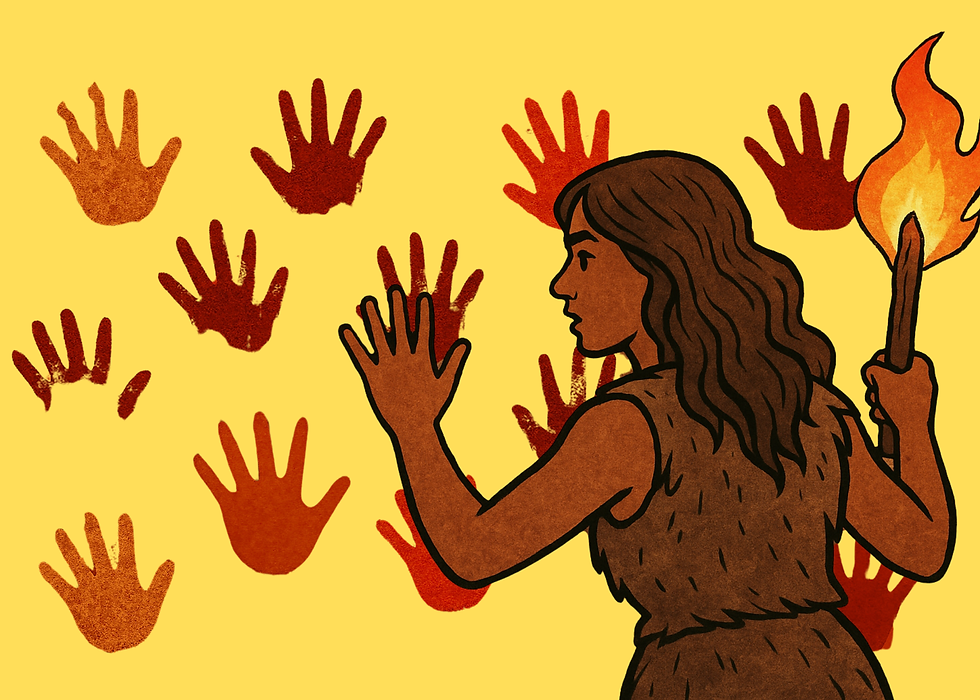Storytelling: Humanity's Ancient Itch to Tell Stories
- Zeba Khan
- Oct 9, 2025
- 3 min read

The Human Urge to Leave a Mark
Do you remember being a child and carving your name into the bark of a tree with a pocketknife? Or taking a stick and drawing a huge heart in the sand with something like “A+Z” inside it (or other letter combinations)? Or scribbling your initials across the corner of your school desk in bold, bubble letters?
Maybe you left a secret mark on a wall or created doodles that only you understood. Humans have always had this itch to say: I was here. From cave walls to MacBook stickers, we have never stopped leaving traces of ourselves.
Echoes from the Past
This instinct is ancient. Our Homo sapiens ancestors left handprints on cave walls tens of thousands of years ago. These were more than just marks—they were proof of existence, or whispers through time, telling us (or telling themselves): This is my story. This is our story.
And here’s the truth: centuries later, we’re not so different from our ancestors.
Why did they do it? Was it for the future? For themselves? Or simply to make sense of their world?
Whatever the reason, those cave paintings continue to spark curiosity and connect us to them. They remind us that storytelling is not just art; it’s survival. It’s how we understand ourselves, each other, and the world. And we want to do it, we want to be remembered in some shape or form before we're gone.
And storytelling, it seems, is the timeless method of creating our remembrance.
The Modern Storyteller
Today, we tell stories through books, films, social media posts, songs, art, and podcasts. The tools have changed, but the itch remains.
The question now is: how will this tradition evolve in the age of AI?
When Technology Becomes the Antagonist
AI is fast, efficient, and capable of weaving words in ways that surprise us, even scare us. But here’s the tension: will this efficiency erase individuality? If AI can write better, quicker, and sharper than we can, what happens to the human voice—the messy, imperfect, emotional voice that makes stories unforgettable?
Imagine if those cave paintings we marvel at today were not created by human hands, made of flesh and blood but by some cold steel alien technology. Would they still move us? Would they carry the same weight? Probably not. Because what makes stories powerful is not their perfection nor the nano-tech software they're written with, but their humanity.
The Discipline of Storytelling
Storytelling is like exercise—it builds strength slowly, through practice, discipline, and guidance. It’s not always easy. But when you do it, you participate in a tradition as old as firelight and as essential as breath.
Your Turn to Tell the Story
This is where you, the modern human, step in. You are the writer of your story. You're also the hero of your story, or maybe sometimes the villain. The antagonist? Technology, in all its tempting efficiency. And your guide? Teachers, coaches, and everyone who believes in the enduring magic of writing.
Why It Still Matters
Stories make the world go round. They build communities, spark revolutions, preserve love, and challenge power. And when you are gone, your stories—whether etched in books, carved in memory, or whispered through generations—will remain. They may not change the world. But then again, they might.
So keep writing. Keep telling stories. Because it’s not just what humans do—it’s who we are.



Comments